
And Death Shall Have Dominion: Tales of Doctors, Their Patients, and What Comes For Us All
Theodore Dalrymple Recommends Mikhail Bulgakov,
W.W. Jacobs, and More
Most people have experience of illness and everyone dies, so it is hardly surprising that matters of medical interest or concern are frequently to be found in literature. Many doctors have been writers, and many writers were the children of doctors: Flaubert, Dostoevsky and Proust spring to mind, but there have been others. Whole shelffuls of books have been written about the relationship of Shakespeare to illness and medicine.
Somerset Maugham, who trained as a doctor and whose first book recounts his experiences as a medical student delivering babies in the slums of London (he retained his licence to practise for decades after he gave up medicine so that he could continue to prescribe for himself), believed that a medical training was excellent for a writer because a doctor both enters the most intimate details of a patient’s life and yet keeps at a distance, the observing eye never sleeping. The combination of empathic intimacy with distance—or ice in the heart, if you prefer—is just what a writer needs.
But if doctors observe patients, patients observe doctors—which they, the doctors, are sometimes inclined to forget. The doctor is therefore an important figure in many stories, and though I have done no scientific survey, I suspect that more portrayals of doctors are critical than admiring. The more-or-less useless doctor is a frequent figure in Chekhov, perhaps the greatest of all short-story writers. An active member of the profession himself, he was a close and not uncritical observer of his colleagues. (“Medicine is my lawful wedded wife and literature is my mistress,” he once wrote. “When I tire of one, I fly to the other.”)
Then, of course, there is illness itself. In the recent epidemic of Covid-19, many were the recommendations that, in our idleness, we should read Boccaccio, Defoe, Manzoni, Giono, Camus, among others, who made of epidemic disease the occasion of their work. Illness and mortality are made the moral teacher of humanity: we know that the deathbed is the only place in which Ivan Ilyich would ever survey his life.
Many writers had prolonged struggles with disease (“this long disease, my life” wrote Alexander Pope, which was not a whine of self-pity, but rather a pithy summing-up of his experience on earth). In the 20th century, writers such as D.H. Lawrence, Katherine Mansfield and George Orwell were lost to tuberculosis at a young age: perhaps the intensity or urgency of what they wrote was in part a consequence of their chronic illness that kept mortality before their eyes.
Whether illness has any message for us is an open question. Some say yes, others say no: illness is just what it is, the working out of a pathological process in the human body, with no more moral lessons than the force of gravity has.
Nevertheless, as an essential experience of human existence, illness and the response to illness has been, and will always be, an important stimulus to reflection on what, in shorthand, is called the meaning of life, as I hope the following stories amply demonstrate.
*
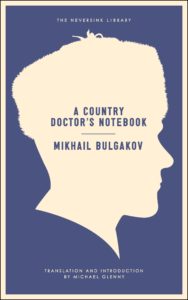
Mikhail Bulgakov (1891 – 1940), “The Embroidered Towel,” from A Country Doctor’s Notebook
Bulgakov trained as a doctor in Kiev, qualifying in 1916, and in this story he relates the terror every young doctor experiences when he is thrown on his own resources to solve a medical problem completely beyond his experience. He also conveys with absolute fidelity the incomparable pleasure that a doctor feels in the gratitude of his patient.
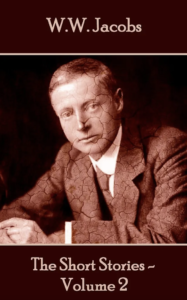
W.W. Jacobs (1863 – 1943), “Back to Back”
W.W. Jacobs was a prolific author who achieved great popularity in his time, but is now largely forgotten. Most of his many stories are about dockers and sailors ashore. Here Jacobs explores in a humorous, tolerant and deeply humane way the propensity of humans to fake illness to obtain advantages for themselves.
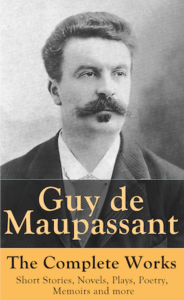
Guy de Maupassant (1850 – 1893), “A Coup D’etat“
In the compass of a few pages, Maupassant suggests the absurdity of political exaltation by comparison with the much earthier realities with which doctors usually have to deal. The downfall of a regime, and the declaration of a republic, are as nothing compared with the sensation of ants crawling up the legs caused by varicose veins.

Anna Kavan (1901 – 1968), “Airing a Grievance”
Anna Kavan, who originally wrote under the name of Helen Ferguson, was much influenced by the writings of Franz Kafka. For a great deal of her adult life, Kavan was an injecting heroin addict. The dealings of the narrator of this story with her doctor partake of a Kafkaesque quality. Is he concerned or indifferent, benign or malign? The nature of the patient’s complaint is not specified and perhaps not even specifiable.
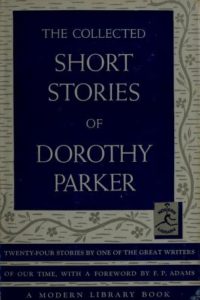
Dorothy Parker (1893 – 1967), “Lady With a Lamp”
Dorothy Parker was a writer famed for her wit and her jaundiced eye for absurdity. The ironic reference of the title to Florence Nightingale renders all the more evident the thoughtlessness, insensitivity and even sadism of the monologue by the visitor to a woman suffering what used to be called a nervous breakdown.
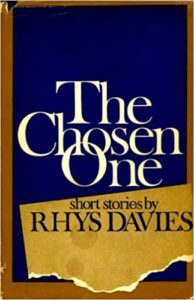
Rhys Davies (1901 – 1978), “I Will Keep Her Company,” from The Chosen One
Rhys Davies was a Welsh writer who left Wales for London after leaving school earl. He soon revealed himself to be a master of the short story. This story, set in the Welsh hills during the exceptionally harsh winter of 1963, we are left unable to decide whether the ending, which involves an avoidable death, is happy or tragic—or both.
__________________________________
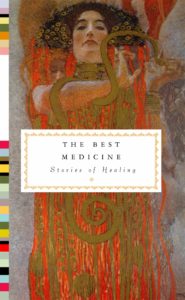
The Best Medicine: Stories of Healing by Theodore Dalrymple is available now via Everyman’s Library.
Theodore Dalrymple
Theodore Dalrymple is a British cultural critic, prison doctor, and psychiatrist. He has practiced medicine in a number of sub-Saharan African countries as well as in the East End of London and in Birmingham. He is a contributing editor to City Journal, published by the Manhattan Institute, where he is the Dietrich Weismann Fellow. His work has also appeared in The British Medical Journal, The Times (London), The Observer, The Daily Telegraph, The Spectator, and National Review, among others.



















